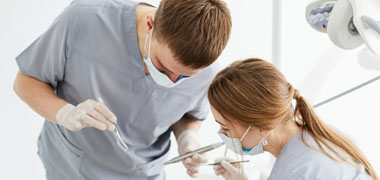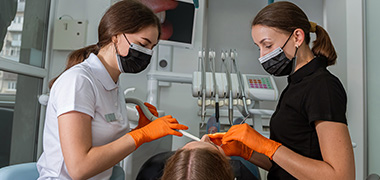
This role has a moderate level of AI exposure. AI can enhance efficiency for some tasks, but this job still relies on human skills and decision-making.
Explore all careersA Radiographer operates x-ray equipment to capture images as requested by medical professionals, ensuring patient safety and proper positioning.
Get qualified to work as a Radiographer with a course recognised across Australia. Speak to a training provider to learn more.
Browse occupations related to Radiographer
In Australia, a full time Radiographer generally earns $2,020 per week ($105,040 annual salary) before tax. This is a median figure for full-time employees and should be considered a guide only. As you gain more experience you can expect a potentially higher salary than people who are new to the industry.
 Courses.com.au Team
Courses.com.au Team
This industry has seen an increase in employment numbers in recent years. There are currently 8,200 people working as a Radiographer in Australia compared to 7,300 five years ago. Radiographers usually work in larger towns and cities where medical imaging facilities are located.
Source: Australian Government Labour Market Insights
 Courses.com.au Team
Courses.com.au Team
If you’d like to embark on a career as a Radiographer, consider enrolling in a Certificate IV in Dental Assisting (Radiography Specialisation). You could also consider a Certificate IV in Dental Assisting (Radiography and Oral Health Promotion Specialisation) or a Dual Certificate III in Dental Assisting and Certificate IV in Dental Assisting with Radiography Specialisation.
 Courses.com.au Team
Courses.com.au Team



A Radiographer operates x-ray equipment at a hospital, dental surgery or medical imaging facility. You’ll take x-rays according the requests of medical or dental professionals and process the required images. Radiographers ensure patients are properly positioned to get the necessary views and ensure radiography safety is maintained. You’ll send images and results to relevant medical or dental professionals.
Radiographers should have excellent attention to detail and keen observational skills. It’s important that you can communicate well with patients as well as with healthcare teams. Radiographers need good personal skills and you’ll need to listen to the concerns of your patients. You must be able to follow correct procedures during your work.